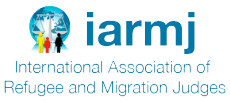This appeal shed light on the issues surrounding refugee protection, as it considered whether the appellant's legal status and place of residence should affect his bail application.
The court determined whether the magistrates court misinterpreted evidence regarding the appellant's residence. It found the magistrate failed to consider the appellant's compelling evidence demonstrating his suitability for bail.
Despite acknowledging the magistrate's competence in addressing bail principles, the court emphasized the main concern was whether granting bail aligns with the interest of justice. It stressed that courts should generally favour bail, leaning toward the liberty of the accused unless it jeopardizes the interest of justice.
However, due to the appellant's dishonesty about his address during the bail process, the court concluded that releasing him would not serve the interest of justice.
Bail appeal, refugee, rape, criminal procedure
The appellant was a Congolese citizen who had been granted refugee status and lived in Osire Refugee Camp. However, during the court proceedings, he falsely claimed to reside in Windhoek. In reality, he was permitted to visit Windhoek only on occasions, with the relevant authorities in Osire and Windhoek issuing the necessary permits.
The appellant, having been introduced to the complainant through a mutual friend, provided spiritual services to her. Subsequently, he faced accusations of raping the complainant while conducting spiritual rituals. The appellant was arrested on a rape charge and sought bail twice, but both attempts were unsuccessful.
The appeal was dismissed.
The court held that the appellant's dishonesty about his residence prevented him from sufficiently demonstrating he was a suitable candidate for bail.
